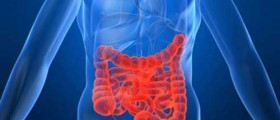What is Crohn’s disease?
There are a lot of people all over the world who do not know what exactly Crohn’s disease actually is. Just like ulcerative colitis, Crohn’s disease is a type of inflammatory bowel disease. Both of these diseases involve an immune reaction against the intestinal tract. In case of an ulcerative colitis, a person’s colon gets inflamed but the small intestine works regularly. However, in case of Crohn’s disease, the small intestine gets inflamed and that is why people with this disease have problems when they need to digest and absorb essential nutrients that foods contain. This is also why people with this disease are more likely to suffer from malnutrition. The lack of nutrients is usually accompanied by a bad appetite. There are several causes of malnutrition apart from the inflammatory bowel disease, like alterations in taste, reduced food or nutrient intake and not enough essential nutrients. In cases when the disease affects only the small intestine a person is likely to suffer from diarrhea and undernourishment. However, in cases when the large intestine is inflamed as well a person will experience a severe case of diarrhea. This is then a problem because severe diarrhea and malnutrition may lead to anemia and low levels of vitamins B12, for instance. People with Crohn’s disease usually have a lot of problems with nutritional deficiencies and are usually unable to maintain normal weight.
What is a Crohn’s disease diet plan?
People with Crohn’s disease have already looked for various types of diet that is best suited for them. However, the truth is that there is no specific diet for inflammatory bowel disease that has been scientifically proven. Experts do believe that people are able to identify the foods that cause the gastrointestinal symptoms however. A person who knows which foods trigger these symptoms will more easily manage diarrhea, bloating, abdominal pain and cramping. Experts agree that people with this disease should consume foods rich in calories and protein. In addition to this, a person is likely to be prescribed with certain vitamin and mineral supplements.
Foods to avoid
Not every food will trigger the symptoms with every person. A person needs to find out which foods trigger his or her symptoms. However, there are a number of foods that is common with a lot of people. Such foods are alcohol, butter, mayonnaise, oils, carbonated drinks, coffee, chocolate, dairy products, fatty and fried foods, high-fiber foods, nuts and seeds, raw fruit and vegetables, spicy foods and whole grain and bran.

















Your thoughts on this
Loading...